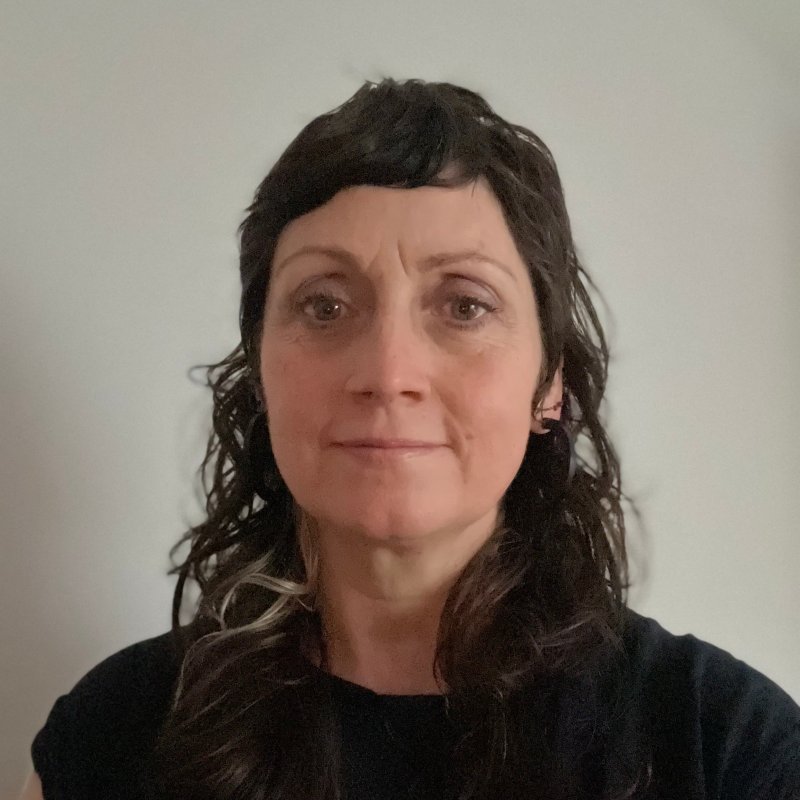Karen Brett
Senior Lecturer
Karen Brett is an artist working with photography, moving image & sound who graduated with a BA in Documentary Photography from University of Wales, Newport & an MA in Photography from London College of Communication. Brett has exhibited nationally and internationally through solo and group shows, her work has been published and received numerous awards and bursaries to support the continuation of her practice.
Brett’s projects have been continually funded by the Arts Council, England and selected for influential awards, competitions and festivals such as European Award for Women Photographers in Tuscany, East International, Ffotogallery in Cardiff, Le Mois de la Photo in Montréal, Photomonth in Krakow and artP.kunstverein in Austria. Her work is also held in the permanent 20th Century Fine Art Collection at Cardiff Museum.
Karen has been lecturing at Falmouth University since 2007, her role as a lecturer is to create a platform to enable students to question themselves in a way that challenges their own visual perception, encouraging them to push their ability as photographers/artists and represent the world they encounter in a more intuitive and dynamic way.
External Links
Qualifications
Qualifications
| Year | Qualification | Awarding body |
|---|---|---|
| 2005 | Master of Arts | London College of Communication |
| 1998 | Bachelor of Arts (1st Class Honours) | University of Wales, Newport |
Honors and awards
| Year | Description |
|---|---|
| 2004 | Small Wonders Award (Picture This, Bristol) |
| 2001 | Melhuish Fine Art Award |
| 2000 | European Woman Photographer of the Year |
Research Interests
Research interests and expertise
Brett’s main objective as an artist is to continually explore and question the physical sense of space in relation to a psychological sense of self. Aesthetics of the unfamiliar, body and mind disturbances, presence and performance within the domestic space are areas that underpin her practice.
Brett’s aim is to encourage the viewer to ‘see & feel’ rather than just ‘look’. Her work is not about resolving something but about showing something, through investigation, gaining knowledge and patiently waiting for things to emerge.
Brett states “I have always felt the need to build a relationship with the subject – through research, then creating a safe place to find the voice inside each participant, one that expresses who they really are, to speak openly & honestly about their experiences. I start a dialogue, a conversation, I am not looking for answers, just feelings. It’s an understanding between artist and subject, and always a collaboration.”
Recent Collaborations:
The Attune Research Project (2022-2026) involves academic researchers from Oxford University and Falmouth University delivering a 4-year programme which combines both artistic and scientific methods to explore the effects of adverse childhood experiences (ACEs) in children and young people.
Brett was commissioned at the initial stages of the project (2022-2023) to create a series of photography workshops to enable young people from Cornwall to explore and express their concerns around their mental health.
Brett’s aims for the Attune project was to give young people the time and space to think about their mental health and express themselves through images and words and document it within a notebook. Brett states, “It is not just about making work but about being together, understanding one another and trusting each other.”
Brett intuitively re-created each of the participants notebooks on InDesign to produce a series of photo zines for the young people themselves to self-reflect but also to be used to reach out to others. The final photo zines will generate supportive words of wisdom.
Research topics:
- Death & Grief
- Mental Health
- Psychology
- Neuroscience
Research Outputs
Publications and research outputs
-
Alexander, Jesse
McLeod, Gary, Cosgrove, Steph, Sank, Michelle, McMurdo, Wendy, Fontoura, Catarina, Brett, Karen and Pfab, Anna-Maria, (2019), The Living Image: Falmouth Flexible Photography Symposium 2019, Falmouth University
-
Brett, Karen
(2015), Psychological States, In: Psychological States, Sept - Dec 2015, http://vasa-project.com/video/brett/brett-archive.html, (Published) -
Brett, Karen
(2015), Press Play: Short Film/video work, screening & discussion, curated by Susan Francis, In: Press Play: Short Film/video work, screening & discussion,, 5th June 2015., Salisbury, Wiltshire., (Published) -
Brett, Karen
(2015), Loose Space:Group show curated by Claudia Pils, showing at artP.kunstverein, Perchtoldsdorf, Austria., In: Loose Sapce, May - June 2015, artP.kunstverein, Perchtoldsdorf, Austria., (Published) -
Brett, Karen
(2009), Three, In: Picture This, 15 March - 19 April 2009, Picture This Atelier, Bristol, UK, (Published)
-
Mankee-Williams, Anna and Brett, Karen
(2023), The Attune Project Zines: Adolescent Mental Health, In: The Attune Project, 30th September 2023, Oxford University, Item availability may be restricted.
Externally funded research grants information
| Collaborators | Currency | Funder | HESA Category | Project title | Value | Year ending | Year starting |
|---|---|---|---|---|---|---|---|
| The Arts Council of England | Horses Warped on a Altering Canvas | 5000 | 2006 | ||||
| The Arts Council of England | Conversations with Myself | 5000 | 2003 | ||||
| The Arts Council of England | The Myth of Sexual Loss | 5000 | 2001 | ||||
| GBP |
Teaching
Areas of teaching
- Photography
Courses taught
- BA(Hons) Photography

